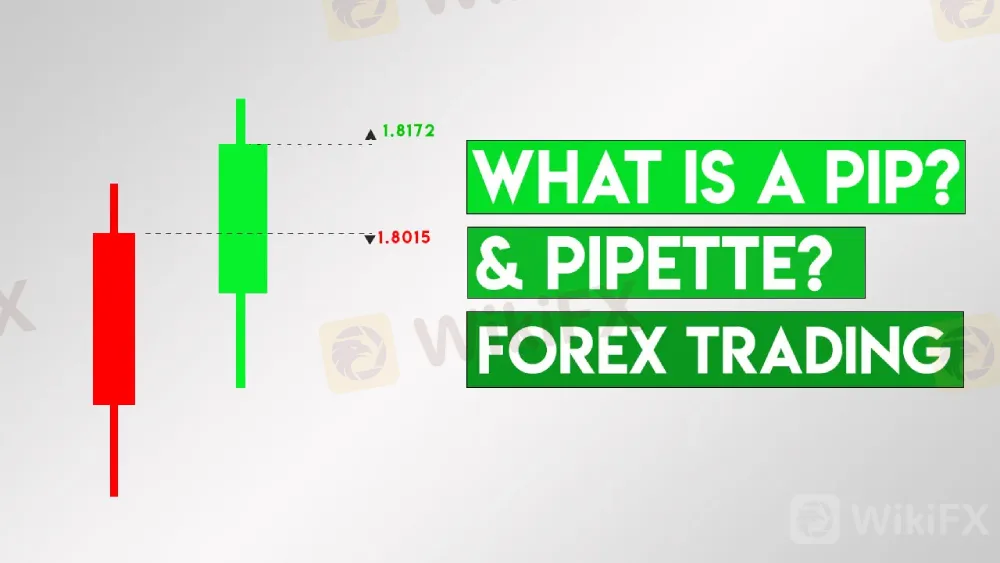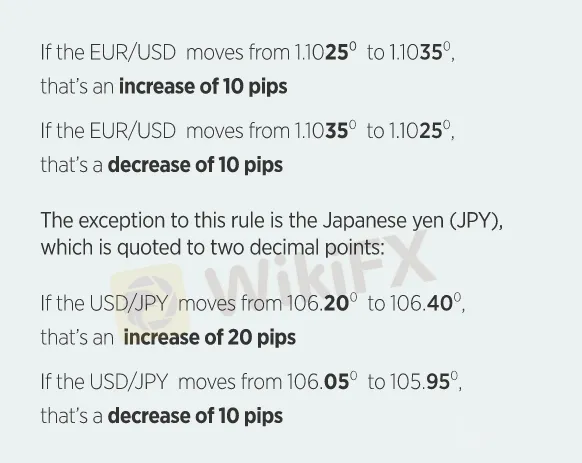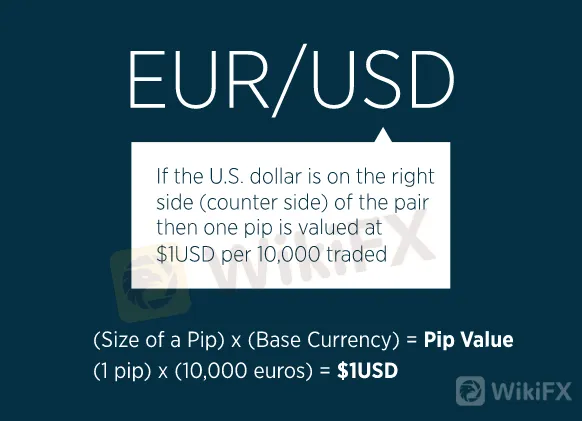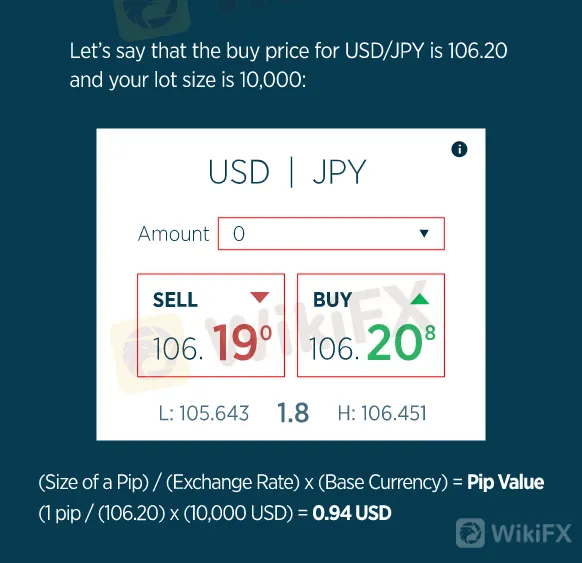简体中文
繁體中文
English
Pусский
日本語
ภาษาไทย
Tiếng Việt
Bahasa Indonesia
Español
हिन्दी
Filippiiniläinen
Français
Deutsch
Português
Türkçe
한국어
العربية
What is a PIP? - WikiFX Forex Trading Concepts
Abstract:A point-in-percentage, or pip, is a standardized unit used to quantify tiny changes in currency pair pricing. Even modest market swings may offer potentially profitable trade settings as well as possible losses. Therefore, the tiny pip increment guarantees that constant trading chances are accessible. Furthermore, the pip dramatically improves order accuracy and spread specificity. All of our platforms automatically count pips to calculate the profit or loss of your transaction.

Currency values are generally reported in pips or percentages in points since they vary in such small increments. A pip is often defined as the fourth decimal point of a price, which is equivalent to 1/100th of one percent.

Pips in Fractions
The fractional pip, which is 1/10th of a pip, is represented by the superscript number at the end of each price. The fractional pip indicates price fluctuations much more precisely.
Pips in Action

Determining the worth of a pip
A pip's value fluctuates depending on the currency pairings you trade as well as which currency is the base currency and which currency is the counter currency.

Using the same example, you purchase 10,000 euros at 1.10550 versus the US dollar (EUR/USD) and earn $1 for every pip rise in your favor. You would profit $10 if you sold at 1.10650 (a 10-pip gain).
If all of the above conditions were met, but you sold at 1.10450 (a ten-pip drop), you would lose $10.
Consider the USD/JPY pair, in which the US dollar serves as the base currency.
The USD/JPY exchange rate determines the value of one pip in this situation.

So, using the same example, you purchase 10,000 US dollars at 106.20 yen and make $0.94 for every pip rise in your favor. You would profit $18.80 if you sold at 106.40 (a 20-pip gain).
If the aforementioned conditions were the same but you sold at 106.00 (a 20-pip decline), you would lose $18.80.
More WikiFX educational articles may be found at the following address: https://www.wikifx.com/en/education/education.html.


Disclaimer:
The views in this article only represent the author's personal views, and do not constitute investment advice on this platform. This platform does not guarantee the accuracy, completeness and timeliness of the information in the article, and will not be liable for any loss caused by the use of or reliance on the information in the article.
Read more

Webull and Others Fined $275,000 for Incomplete Suspicious Activity Reports
Webull Financial, alongside Lightspeed Financial Services Group and Paulson Investment Company, LLC, has agreed to pay a collective fine of $275,000 following an investigation by the US Securities and Exchange Commission (SEC). The penalty was issued due to the firms’ failure to include essential information in suspicious activity reports (SARs) over a four-year period.

Barclays Resolves £40M Fine Over 2008 Fundraising Disclosure Failures
Barclays has reached a settlement with the UK’s Financial Conduct Authority (FCA), agreeing to pay a £40 million fine for failing to adequately disclose arrangements with Qatari investors during its critical fundraising efforts amidst the 2008 financial crisis.

WikiEXPO Global Expert Interview: Advanced Practices and Insights in Financial Regulation
In the midst of rapid advancements and evolving landscapes in financial technology, financial regulation, and ensuring financial security, WikiGlobal stands at the forefront, closely tracking these transformative trends. As we embark on our series of exclusive interviews focusing on these pivotal areas, we are delighted to have had an in-depth conversation with.

Alleged Concerns with TradeEU.global's Trading Practices
An individual trader has come forward with allegations of an unfavourable experience while using the services of the broker TradeEU.global.
WikiFX Broker
Latest News
Saxo & Portuguese Bank Partnership
SEC Fines Broker-Dealers $275K for Incomplete SAR Filings
Elon Musk Warns of Imminent US Bankruptcy | Bitcoin Retreats from $100K
UK FCA Fines Barclays £40 Million Over 2008 Deal
WikiEXPO Global Expert Interview: Advanced Practices and Insights in Financial Regulation
Justin Sun Invests $30M in Trump-Backed World Liberty Financial
Lured by False Promises: Malaysian Driver Lost RM218K to an Investment Scam
FTX Sets March 2025 Timeline for Creditor Payouts: What It Means for Investors
What is an Economic Calendar? How it works
Pros & Cons of Automated Forex Trading
Currency Calculator


